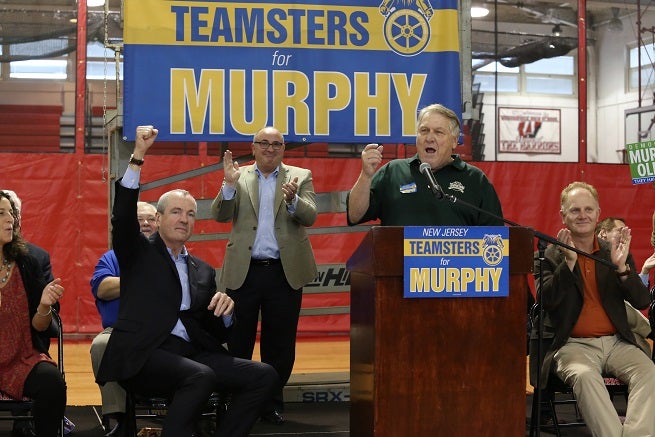Uncategorized
N.J. Bolsters Union Rights of Public Sector Workers

The rights of public sector workers in this country to negotiate for better wages and benefits is currently under attack, with a Supreme Court decision looming that could ultimately curb the power of unions.
But public school teachers and government workers won’t have any such worries in New Jersey, after Gov. Phil Murphy signed into law legislation that ensure that unions representing public employees will be able to carry out their duties in the state.
“This bill promotes labor stability in the public sector by ensuring that employee organizations that are the exclusive representatives of public employees in collective negotiations are able to carry out their statutory duties by having access to, and being able to communicate with, the employees they represent,” Murphy wrote in a signing statement.
The measure, known as the Workplace Democracy Enhancement Act, allows associations with majority bargaining status to meet with individual employees at the job site during the workday to investigate and discuss grievances and workplace issues.
Unions under the law have the right to conduct worksite meetings during lunch and other non-work breaks. Among the topics eligible for discussion include collective bargaining, collective bargaining agreements and internal union matters involving the governance of business of the organization.
The legislation also protects the privacy rights of public employees. It states that home addresses, phone numbers, email addresses, birth dates, employee negotiation units and groupings, and communications between employee organizations and their members are not government records and are exempt from the state’s Open Public Records Act.
The new law serves as an important backstop in New Jersey as the nation’s high court gets ready to rule in “Janus v. AFSCE” any day now. And it should serve as a model for other states to institute policies that protect workers and their union rights.
Being in a union isn’t a burden, as opponents would paint it. The median union job pays $11,000 more than the median non-union one. It also provides better health and retirement benefits. But due to a years-long campaign fueled by the billionaire industrialist Koch brothers and other corporate entities, millions of workers could see those benefits begin to melt away.
State lawmakers need to stand up for their constituents and protect middle-class jobs!